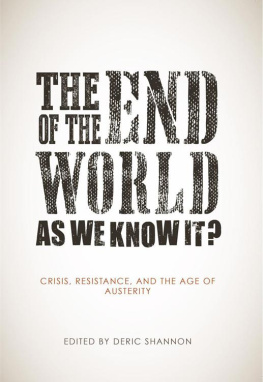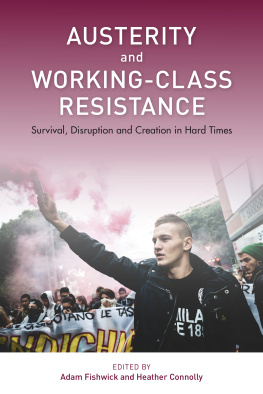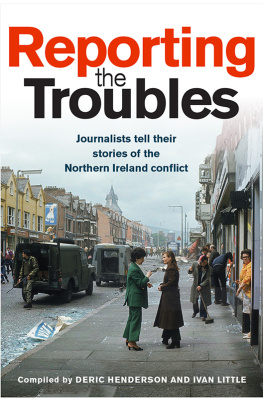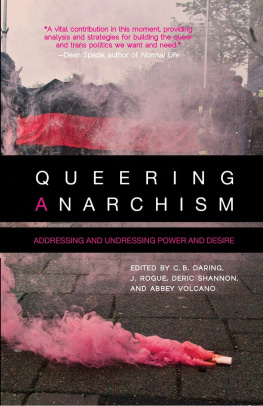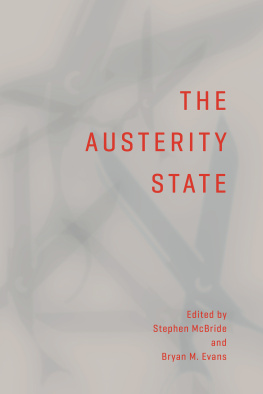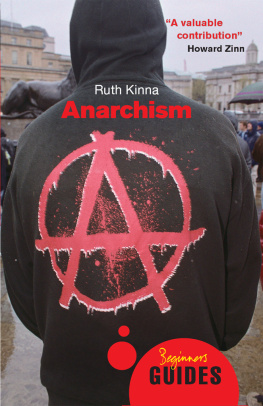Deric Shannon - The End of the World as We Know It?: Crisis, Resistance, and the Age of Austerity
Here you can read online Deric Shannon - The End of the World as We Know It?: Crisis, Resistance, and the Age of Austerity full text of the book (entire story) in english for free. Download pdf and epub, get meaning, cover and reviews about this ebook. year: 2014, publisher: AK Press, genre: Politics. Description of the work, (preface) as well as reviews are available. Best literature library LitArk.com created for fans of good reading and offers a wide selection of genres:
Romance novel
Science fiction
Adventure
Detective
Science
History
Home and family
Prose
Art
Politics
Computer
Non-fiction
Religion
Business
Children
Humor
Choose a favorite category and find really read worthwhile books. Enjoy immersion in the world of imagination, feel the emotions of the characters or learn something new for yourself, make an fascinating discovery.
- Book:The End of the World as We Know It?: Crisis, Resistance, and the Age of Austerity
- Author:
- Publisher:AK Press
- Genre:
- Year:2014
- Rating:5 / 5
- Favourites:Add to favourites
- Your mark:
The End of the World as We Know It?: Crisis, Resistance, and the Age of Austerity: summary, description and annotation
We offer to read an annotation, description, summary or preface (depends on what the author of the book "The End of the World as We Know It?: Crisis, Resistance, and the Age of Austerity" wrote himself). If you haven't found the necessary information about the book — write in the comments, we will try to find it.
The End of the World as We Know It? explores the origins and effects of the capitalist crisis that began in 2008. It moves on to examine the responses of both the dispossessed and the ruling classes to the catastrophe, giving special attention to student mobilizations around the world. Weaving together a global network of stories and analyses, editor Deric Shannon creates an outline of what real and effective opposition to the forces that are destroying our lives and our planet might look like. From solidarity networks to revolutionary unionism, student strikes, and ever-new forms of state and corporate control, The End of the World as We Know It? is a guide to the future of anticapitalist struggle
Highly recommended reading for the contemporary dissident.Ruth Kinna, author of A Beginners Guide to Anarchism
The End of the World As We Know It? will be an invaluable resource for students of political economy in our momentous times.... [it] offers an indispensable array of perspectives on the crisis in contemporary global capitalism, with an eye toward dismantling it. Alessandro De Giorgi, author of Re-thinking the Political Economy of Punishment
A must-read for those interested in navigating the turbulent waters of economic uncertainty, political instability, and global resistance. The contributors not only provide clear and accessible analyses but also, and more importantly, a range of thought-provoking proposals for change which challenge an increasingly unequal and unsustainable status quo. Nathan Jun, Author of Anarchism and Political Modernity
There is nothing more important for anticapitalists than providing sharp analysis and relevant answers to the problems of our time, rather than merely propagating noble ideals. Here is a book that lives up to the task. Gabriel Kuhn, editor of All Power to the Councils!A Documentary History of the German Revolution of 19181919
The contributions in The End of the World As We Know It? provide us with important lessons concerning the economic crisis and the attempts of working people to create a world worth living in. Andrej Grubacic, author of Dont Mourn, Balkanize! Essays After Yugoslavia
Deric Shannon: author's other books
Who wrote The End of the World as We Know It?: Crisis, Resistance, and the Age of Austerity? Find out the surname, the name of the author of the book and a list of all author's works by series.

